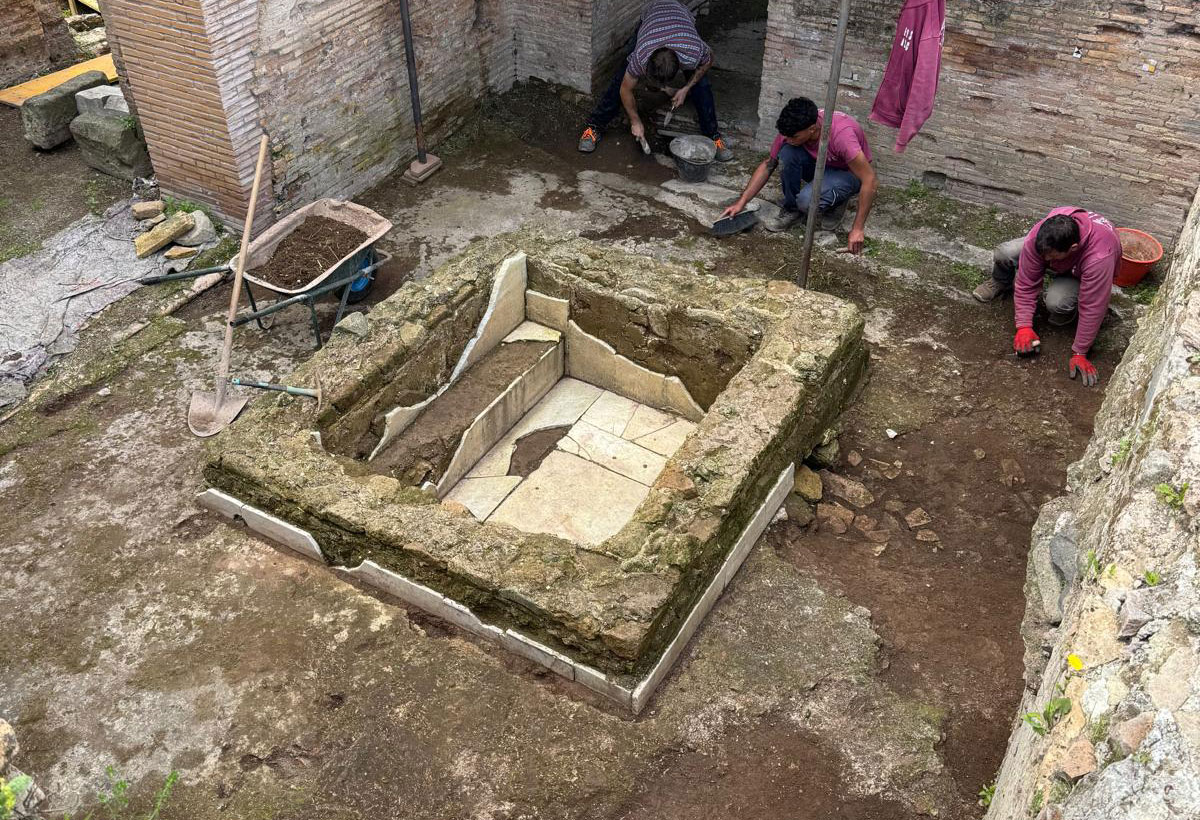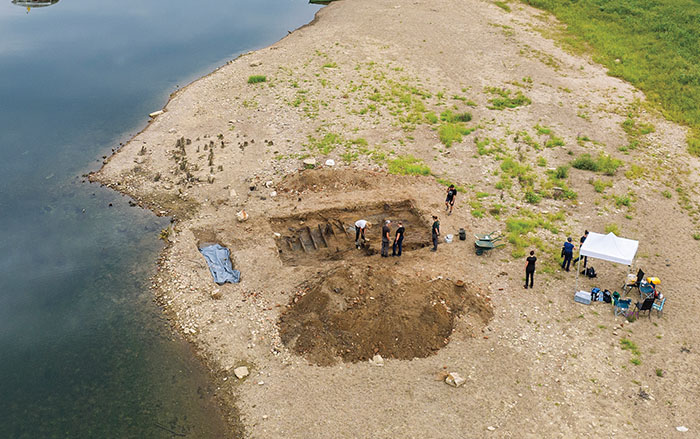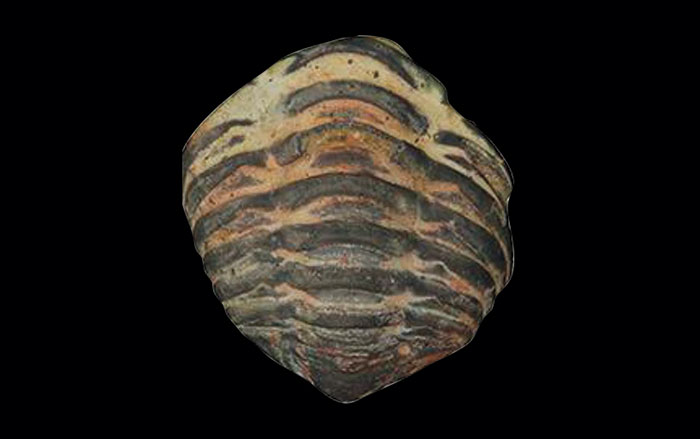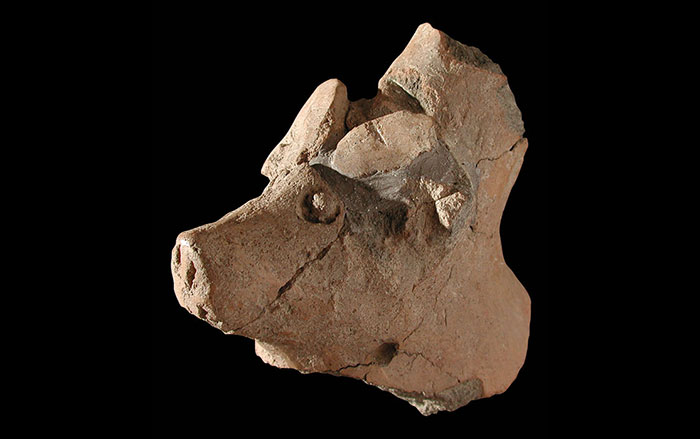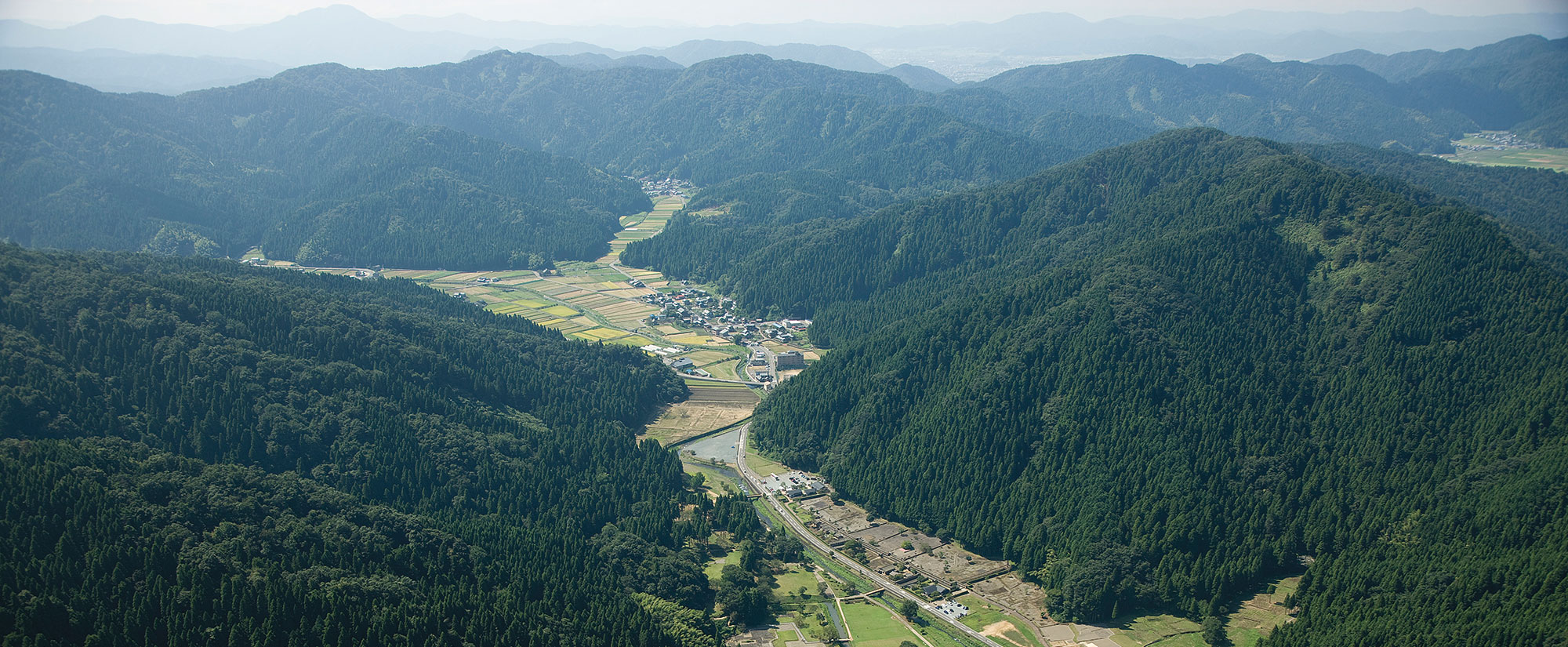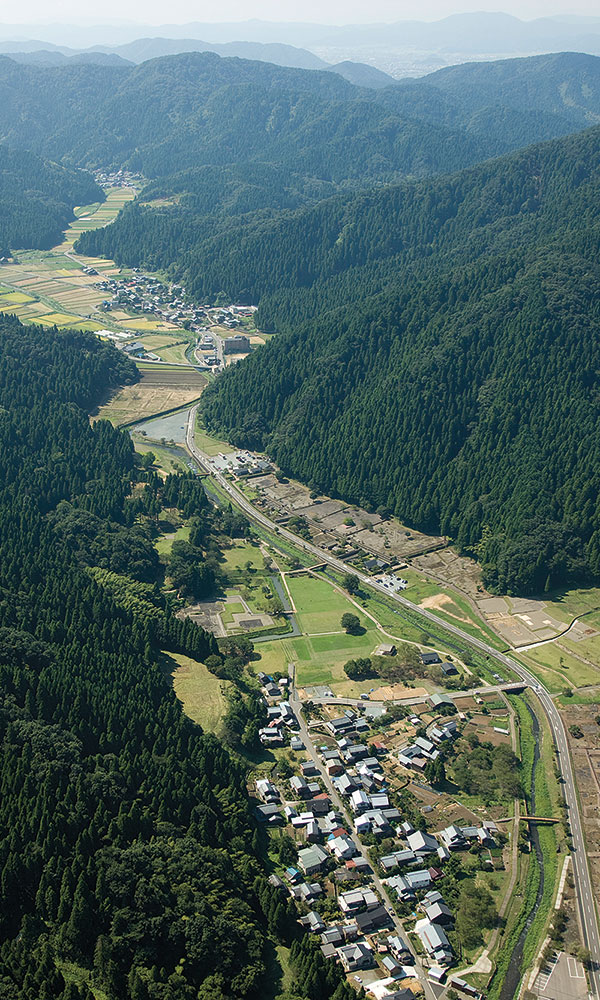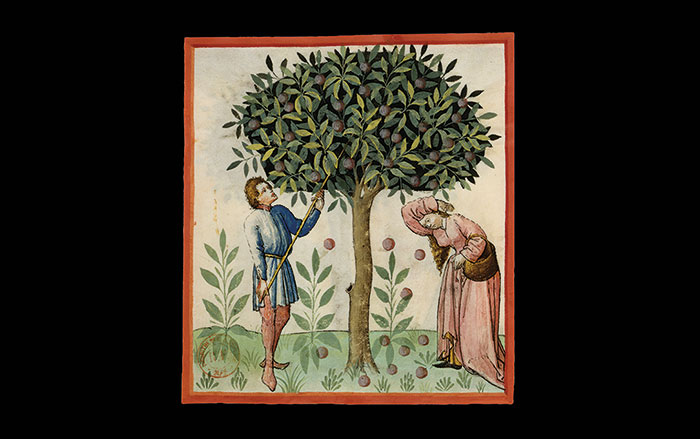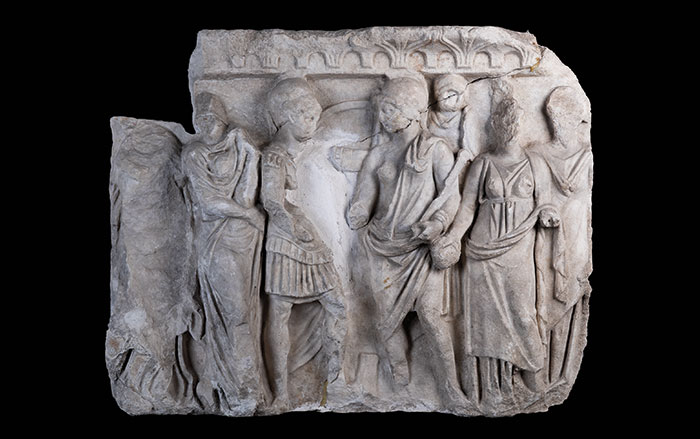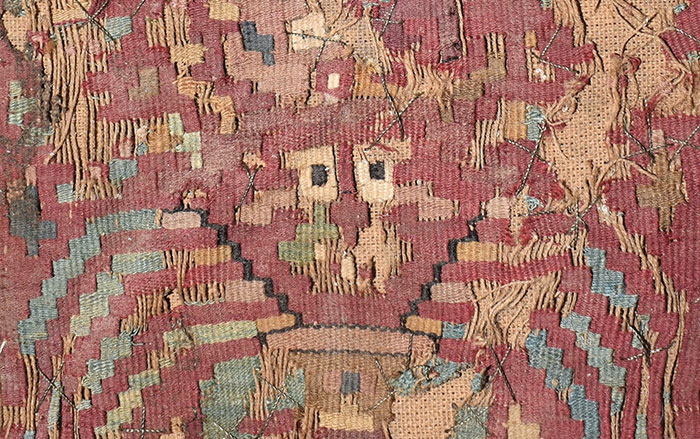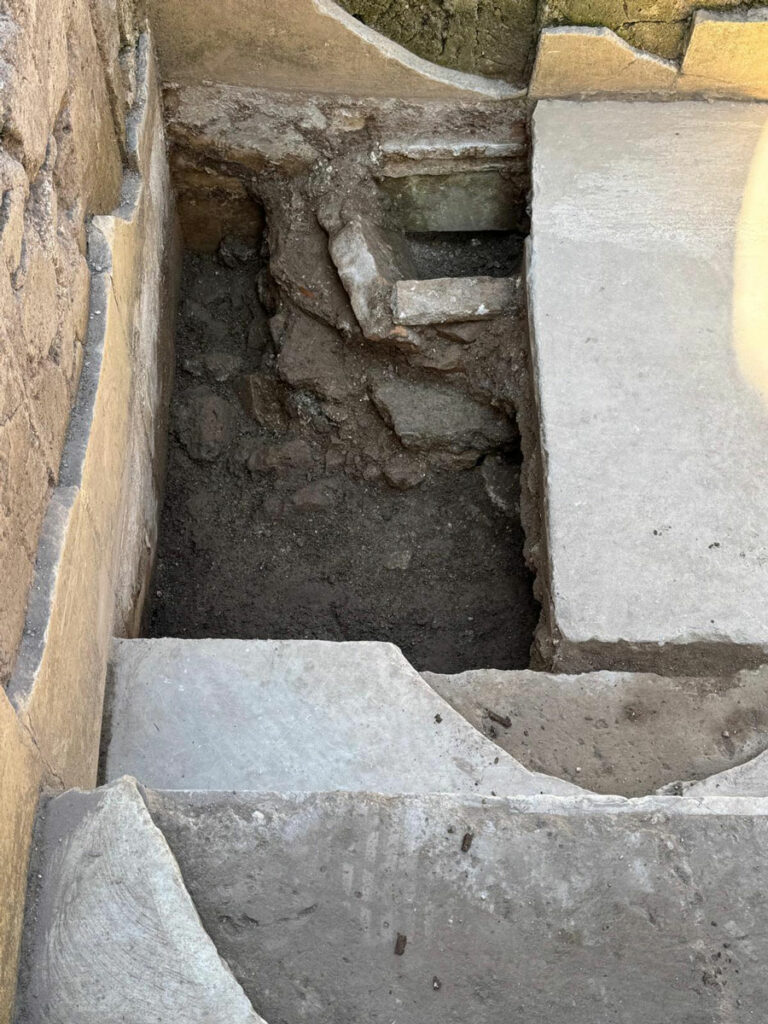
ROME, ITALY—La Brújula Verde reports that recent excavations within the sprawling ruins of the Villa di Sette Bassi outside Rome have revealed how the property underwent major transformations in Late Antiquity, providing new clues about the early spread of Christianity in the region. Dating to the second century a.d., the complex, which is located in the Archaeological Park of the Appia Antica, was once one of the largest villas ever built in the Roman countryside. Archaeologists learned that in the centuries after the estate was constructed it was transformed into a Christian church. Within part of the property known as the Triton Baths, they unearthed a marble-lined vasca, or tub, where Christian converts were baptized. It was built in two phases. In its first phase, the vasca was quite deep, as initially candidates for baptism underwent a full body immersion into the pool. However, later alterations to the sacrament did not require such a rigorous procedure and the floor of the tub was raised accordingly. Several burials nearby suggest that the building may not have been just a simple chapel, but instead may have played a significant role in the early spread of Christianity. Researchers believe that it is even possible that a bishopric may have once been centered there. To read about the city's early Jewish community, go to "Letter from Rome: Secrets of the Catacombs."


